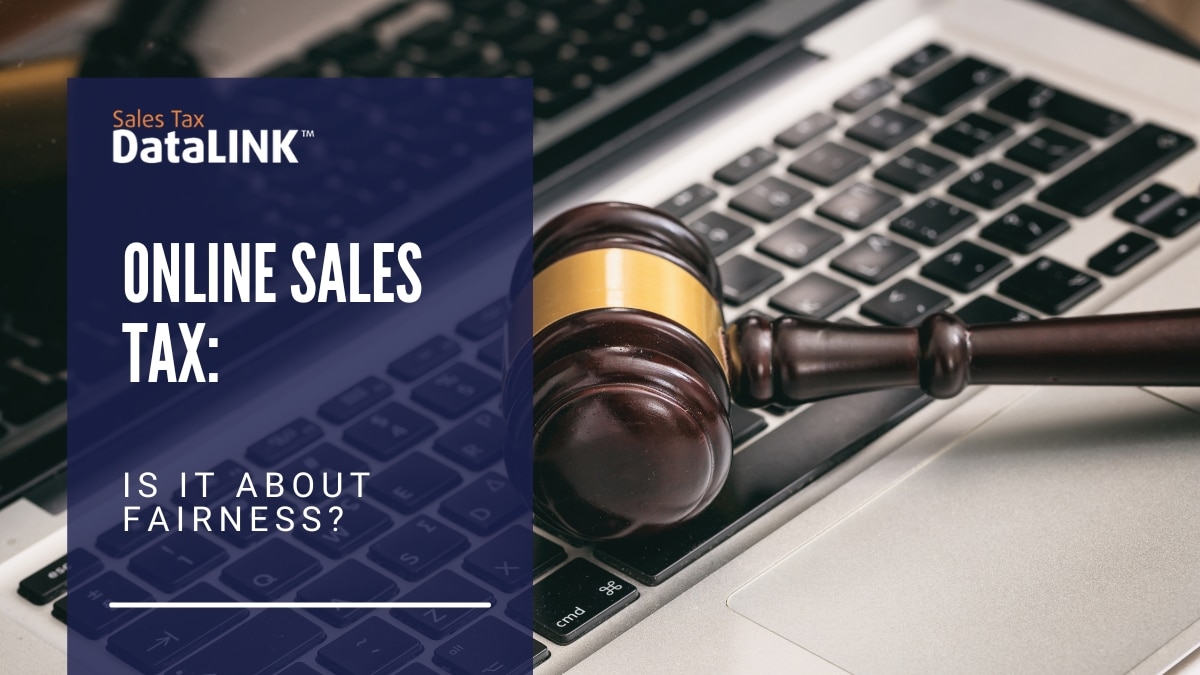Online Sales Tax: Is It About Fairness?
Most purchases take place in stores. Physical stores where people can touch, try out, and perhaps taste or smell the items they’re buying. Internet shopping is increasing, though, along with hybrid forms of purchasing like online orders for physical delivery or pickup. Right now, you can order a birthday cake for your friend in another state and have it delivered right there in the state by your friend’s local bakery, and the bakery usually will not have to collect sales tax. You would still be required to pay sales and use taxes, but the truth is that most people don’t keep track of their online purchases or make any effort to pay the tax on them. This issue is often presented as a question of fairness.
Local businesses, we’re told, have to collect sales tax. This gives online sellers an advantage over their local small businesses. People order from e-commerce sites like Amazon, the argument goes, in order to save the cost of sales tax. This puts local businesses at a disadvantage. Does it? Estimates suggest that 70% of e-commerce transactions are already taxed in most states. People shop with companies that have stores in their states, from big box stores like Target and Walmart to specialty chains like Pottery Barn and Sephora. They also shop with small merchants who would be exempt from laws like the Marketplace Fairness Act anyway. What’s more, local businesses increasingly participate in e-commerce themselves. Nothing changes a brick-and-mortar merchant’s mind about online sales tax faster than learning what he’ll have to do to comply with requirements to collect sales tax in multiple jurisdictions.
As we’ve pointed out before, the states are not trying to impose sales tax out of an altruistic desire to support Main Street. States are for hurting sales tax revenue, not just because more people are shopping online but because consumers are nervous and spending more cautiously. Naturally, seeing that e-commerce sales reached an estimated $263.3 billion in 2013 makes states wish they were receiving the sales tax on those transactions. Will remote sellers be held accountable for collecting sales tax? It’s likely that at some point they will. The Constitution requires no “undue burden” on interstate commerce. The object of the requirement was to make sure that no state could make protectionist rulings against other states. At the time, states that had seaports had great economic advantages over those that did not.
The ability of those states to benefit from this advantage at the expense of neighboring states created intense rivalries that threatened the unity of the nation. That isn’t relevant to Amazon. It might be time for sweeping sales tax reforms that recognize the changes in our world, as some have suggested. It might be time for states to get creative about raising revenue. Whichever direction the government takes, buyers and sellers alike must be on their toes. A web-based sales tax solution helps your company remain responsive and up to date, no matter which way the controversy goes.




